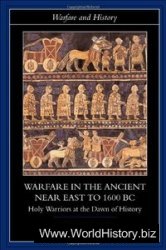When concentrated in the hands ofone man, power generates insolence, greed, erotic frenzy, and injustice. We can see this with the Great Kings of Persia, when even a relatively measured and flexible sovereign such as Xerxes ends up lusting after his brother’s wife, then seduces this woman’s daughter, and finally kills his own brother. We can see it in the biographies of Greek tyrants, inclined to eliminate any possible competitor, and to rape young women, as Theseus, a most improbable democratic king, claims in Euripides’ Suppliants.
How then could a city remain stable, where one cuts short all enterprise and mows down the young like meadow-flowers in spring-time? What good is it to acquire wealth and livelihood for children, merely to add to the tyrant’s substance by one’s toil? Why train up daughters virtuously in our homes to gratify a tyrant’s whim, whenever he wishes, and cause tears to those who rear them? (Eur. Supp. 447-54, trans. Coleridge 1938)
We can see it in monumental figures of authority - stubborn, unbending and despotic - such as Creon in Sophocles’ plays.
And, finally, we can understand the logic of this subversive vision of monarchy, once again, in Aristotle’s definition of injustice. Injustice is a wrongdoing that contravenes the law. If we examine the subjective conditions of its accomplishment, we can see that it is carried out deliberately, thus by a morally flawed person, because that person deems it possible, dunaton. The ability to act against the law, with the certainty of being able to get away with it, is the reason why an intrinsically unjust person commits a particular act of injustice (Arist. Rhet. 1.12.1). People usually select the kind of behaviors that correspond to their vicious dispositions, Aristotle claims, but the actual decision to do the deed requires the assessment that the deed can be done, and can be done by us.
Political power, especially tyranny, makes a lot possible with a great deal of advantage and almost no risk of retribution (Arist. Rhet. 1.12.9-10): it creates the perfect incentive to injustice. Power entails authority, wealth, honor, a high idea of oneself, and the expectation of having always more than everyone else. Individuals who are ambitious, honored, and fortunate in all sort of ways tend to want everything, and become envious of those who possess any of the goods they feel entitled to (Arist. Rhet. 2.10). This is why phthonos is the emotion of the small-minded, but also of the successful. For analogous reasons, individuals who are wealthy (and young) are prone to wrongdoing (Arist. Rhet. 1.12.2), and offensive arrogance, hubris. ‘‘They think that, in acting badly, they make themselves superior’’ (Arist. Rhet. 2.2.6). Hubris is the imposition onto others of one’s sense of superiority; more precisely it is the creation of that superiority, through the very act of offending and dishonoring, therefore diminishing, the other person. The paramount example of hubris is Agamemnon, when he deprived Achilles of his prize.
The response to hubris is anger, orge. And this emotion too is the consequence and the expression of a high self-esteem. Eminently irascible will be the same kind of man who must be hubristic: ‘‘the man in position of ruling towards the one who is ruled, and the man who believes he is worthy to rule, in regards to the one who is worthy of being ruled’’ (Arist. Rhet. 2.2.7). With analytical precision, Aristotle corroborates the portrait Otanes had sketched in the Persian debate.




 World History
World History









